Final Fantasy XVI's Metaphorical Double-Edged Sword
The balancing act
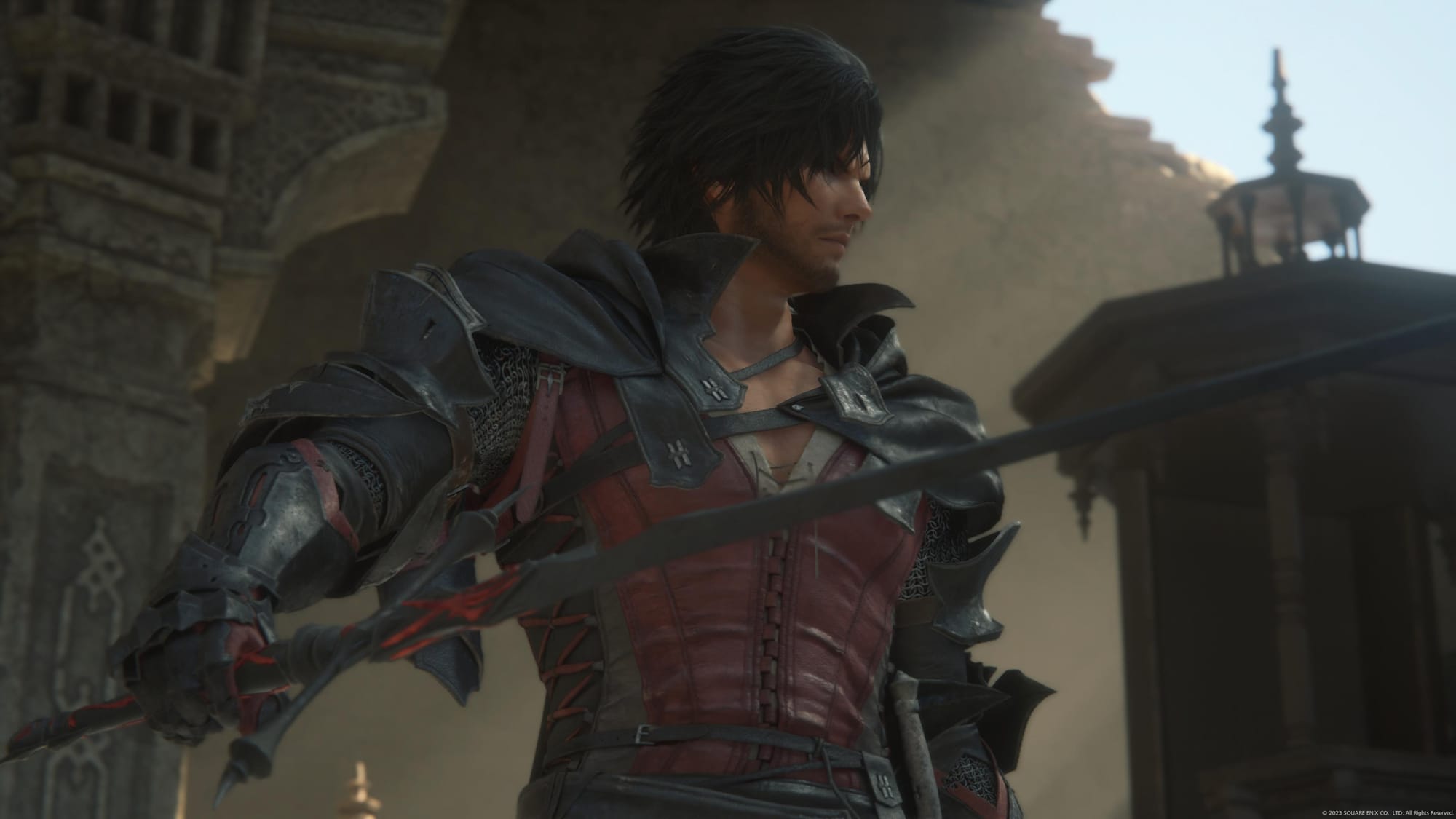
Gigantic swords. They're an essential element carried through every entry in the Final Fantasy series, just like chocobos, a character named Cid, and spiky hair. Mainstays aside, each entry distinguishes itself through a unique story, ratifying the groundwork laid by its predecessors by pulling in elements that suit its current story and testing out new ideas. As with all things, some aspects work and some don't. Every Final Fantasy game has a customized armory of flawless moments and clunky hindrances. Final Fantasy XVI, for instance, has equipped the most disproportionately large double-edged sword ever to grace this wonderful series. I name this gigantic metaphorical sword pacing.

Let me be absolutely clear before continuing, lest you think I'm about to dunk on this game hard: I personally loved Final Fantasy XVI, and am a lifelong fan of the series. Clive and his entourage of rebels are captivating and memorable. The voice acting is superb and contributes to the awe-inspiring cinematic direction. And the boss battles – my GOD, the boss battles! They are beyond anything I've experienced so far in Final Fantasy. During every boss fight, I found myself profoundly inspired to wax poetic about the majesty of the encounter I'd just witnessed on screen. These expressions most often came out in such eloquent phrases like:
"This is the most RAD shit I've ever seen!!"
Me, 33, squealing like an excited pre-teen.
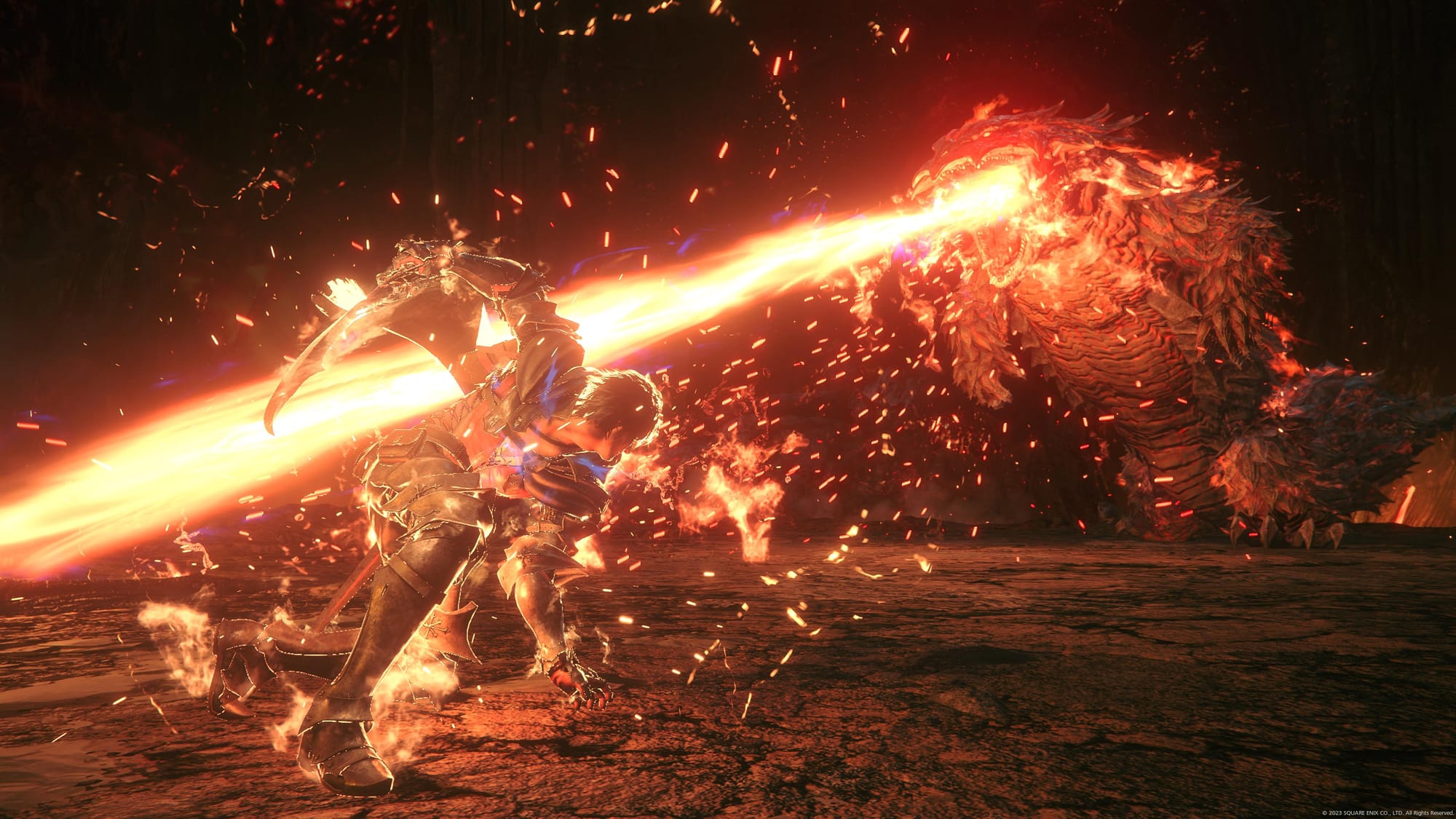
I'm not a skater boi time-traveling from the '90s; I don't say "rad" on a day-to-day basis, or more than a handful of times a year. Yet I couldn't stop describing Final Fantasy XVI's bombastic, world-shatteringly cool clashes like an overly enthusiastic surfer bro. Rad. Gnarly. Sick. I was this close to saying "tubular" unironically. I couldn't stop.
Hours passed in a blink whenever I had to fight another boss. I was completely and utterly enraptured, with time having no bearing upon me; and thus the first edge of Pacing is sharpened.
Then the battle ended, and I found myself back at Clive's quiet rebel hideout, which serves as our in-game home base. Now, instead of being a divine incarnation of elemental power fighting against the physical manifestation of a god that grew to the size of a literal mountain, culminating in the most ridiculously cool power-spiking anime-style clash I've ever participated in, I get to... go on a side quest to pick up a bolt of cloth that's taking too long to be delivered. Hmmm. Okay, I guess.
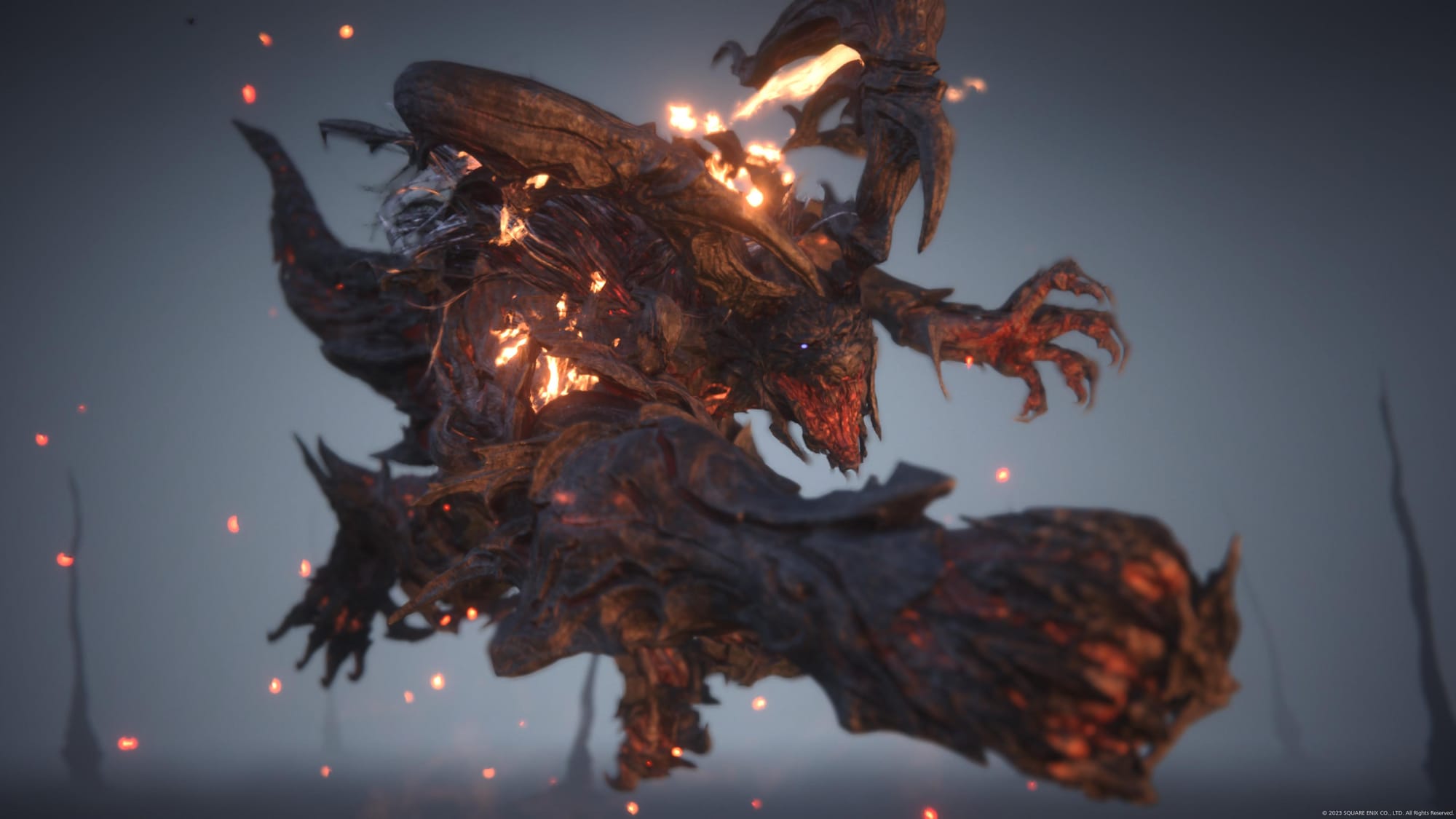
The bolt of cloth quest is understandable and legitimate. A resistance needs clothing. Your fellow resident rebel greatly appreciates your deed and this act reinforces Clive's standing as a caring leader and man of the people. It is fulfilling to see my relationship with this fellow rebel grow, to feel the resonance of humanity through simple acts of kindness amidst this messed up, magical world. It's just that directly after such a crazy high, this kind of quest feels very slow and somewhat flat.
And this is just one quest. After each compellingly climactic stage, there are typically half a dozen low-stakes side quests to run through, which easily take up the span of a few hours. This cycle repeats itself many times over the course of Final Fantasy XVI, which means there are unfortunately multiple portions that can feel like a major slog. And thus the other end of Pacing is sharpened.
I can usually cast my mind into that of the protagonist rather easily, vicariously living through them and imagining their mindset to further immerse myself. It was harder to do that here, as every few hours spent rising to a climax was met with a far less exciting drop-off, and I had to mentally recover from the whiplash. The feeling was akin to stepping off of a treadmill after running for an extended period of time. You're no longer moving fast, but your mind and body still think you are. It's a minor state of unreality.
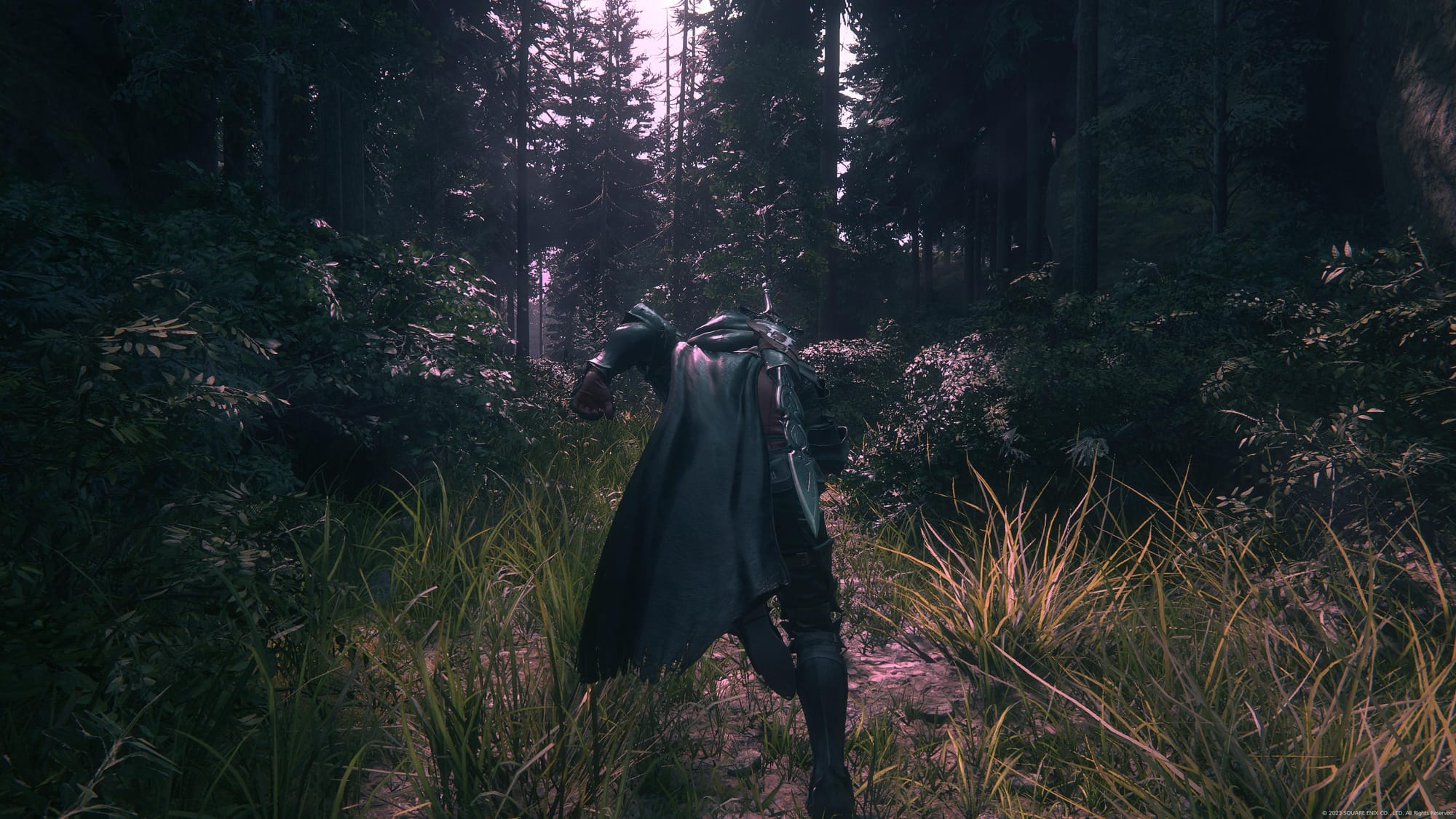
I was just a GOD! Now I'm sent on a menial errand?! Clive has no issue doing so, as he considers his power a necessary burden and painful reminder of his traumatic past, not a defining trait. He wants to care for his crew and fortify their resolve for the coming troubles. But as for me, the player, I'm still reveling in my latent ability to annihilate an evil mountain. My perceived constraints have been shattered and my horizons expanded anew. I have tasted the power of the divine, yet I am once again constrained within this mortal coil, delivering bundles of cloth.
I am reminded of a line from "The Infinite and the Divine", a book from the Warhammer 40k universe,
"Our kind have lived life as mortals, and then as immortals. And though the urge to return to the flesh is nearly universal, what will it be like when an eternal being is once again enshrouded in such... temporary raiment? Can an immortal being become mortal without going mad?"
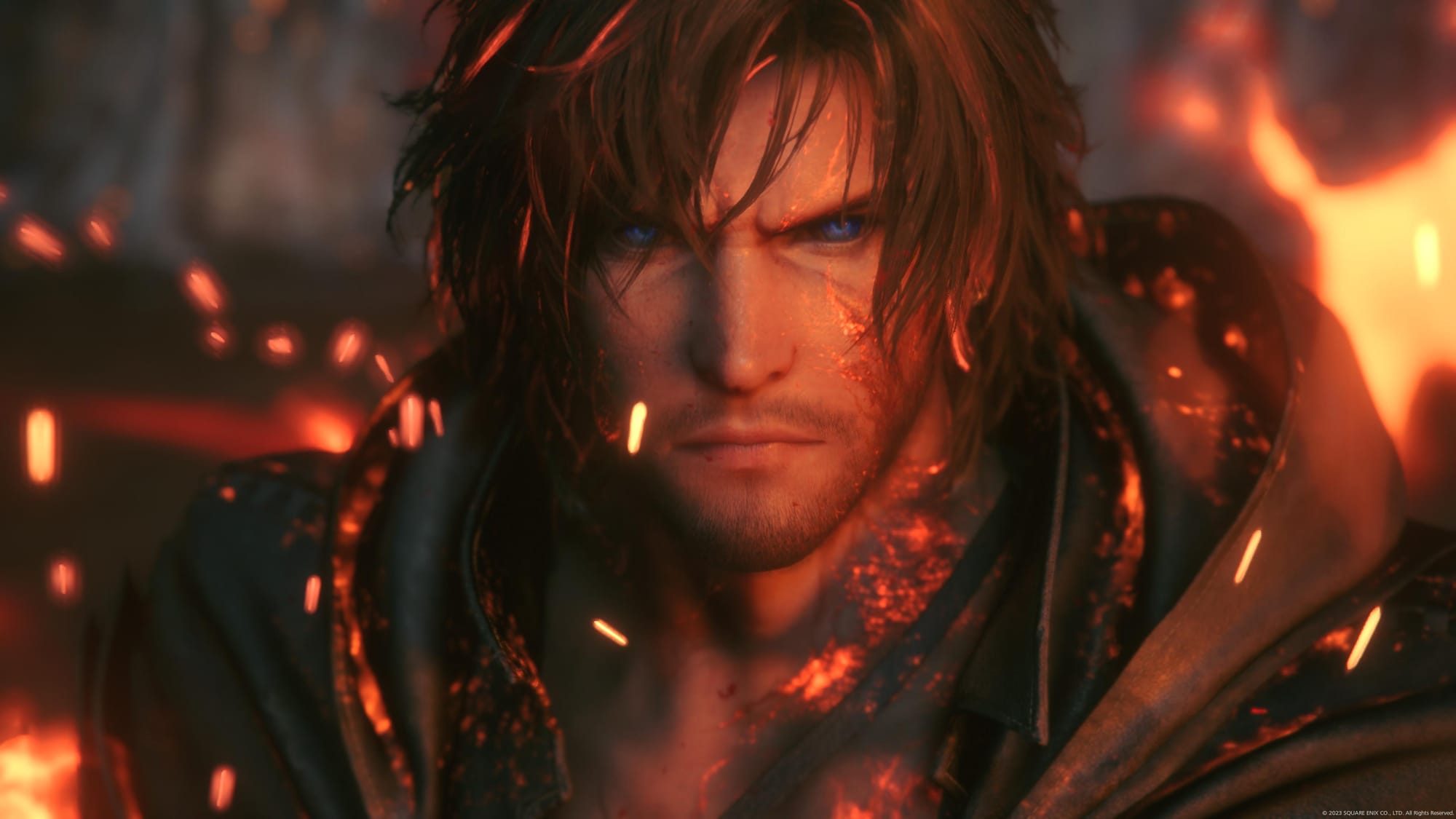
Once I'm done decimating said mountain, I have to step into the boots of an everyday resistance leader and push myself to continue onwards with my duties. I begin to find joy and satisfaction again in the small, intimate moments shared with my fellow resistance members. I help rebel kids with an engineering project, obtain some exotic plant samples, and lift a dear friend out of a depressive episode.
It feels grounded. Real. Connected. Surprisingly so, considering the inherently magical world of Valisthea and the more divine troubles it faces.
It's realistic, and yet surreal. Within the worlds of Final Fantasy, these are inherently entwined. Final Fantasy XVI wants you to vividly experience both. They're the fabric of this series.
The heavenly highs of the boss battles feel that much more magical because we have experienced the harsh rigors of leading a betrodden community through death, displacement, and everyday struggles. If the game was 90% gonzo god battles, then the luster would quickly fade. A balance must be struck for everything to work together, just as a fine sword must be balanced. The combination of high-octane boss stages and slow relatable side quests together creates a sharp, cohesive product.
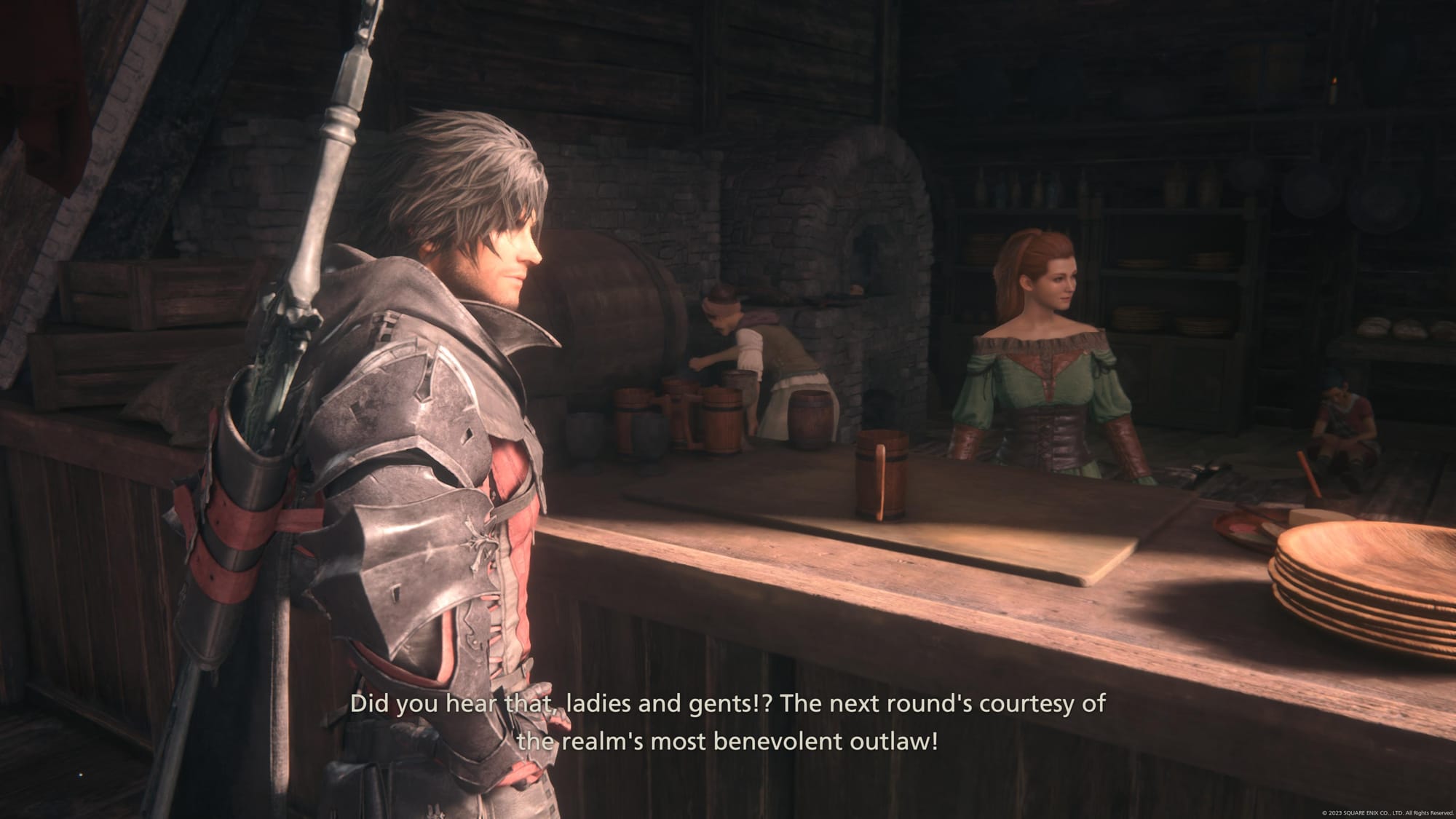
But is Final Fantasy XVI truly balanced? I would say mostly. It could do with fewer sluggish side quests as its narrative arcs wind up, though I genuinely wonder if this article would exist if I simply skipped all or some of the side quests. Would the pace feel perfectly measured, effortlessly weaving every narrative arc's falling action directly into the exposition of the next arc? Maybe. Maybe the playthrough would feel hollow without the small, impactful, human moments that each side quest delivers. I won't replay the game for a few years, so please let me know your experience in the comments.
At the end of the day, we ARE talking about Final Fantasy here, a series notorious for its awesomely huge swords. No way those things can be realistically balanced. Or wielded properly.
And yet they work very, very well.
